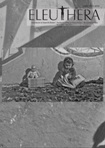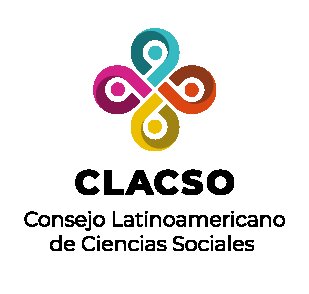Authors
Abstract
Abstract
Introduction: This paper research project pretends to analyze the perceptions of participants about the right to health care and the issues realted to it as well as the emerging categories according to the findings. It arises from the constant concern of the authors while observing and experiencing, the dissatisfaction and continuous complaints from users of health services in the institution in their everyday professional practices. According with the state of the art of previous research, several legal pronouncements by the Honorable Colombian Constitutional Court have been found, as well as publications or documents and articles from indexed journals, especially in the Health Faculties from universities such as Universidad Nacional de Colombia, the National Public Health Faculty at Universidad de Antioquia, and Universidad de Caldas among others, and some others published by the Attorney General’s Office, the Colombian Ombudsman, and the Health Services Superintendent’s Office, which refer to the complaints posed by citizens belonging to the SISBEN (Potential Beneficiaries of Social Programs Identification System), many of which coincide with the findings in this research project. The pertinence and relevance of this study is given because of the purpose expressed by the Ministers appointed for the new Health and Social Protection Ministry, who have been calling Colombian academician’s attention urgently to make public by any means the result of this type of research projects in order to be able to work in proposals able to reform the Social Security and Health Law dealing with the results and findings of studies carried out by researchers in the area in order to justify, with scientific bases, the transformation of the national health care system. Objectives: General: Unravel the perceptions ASSBASALUD users have about the right to health care and about the mechanisms to demand its implementation from the State. Specific: To investigate about how users perceive the right to health care and the mechanisms to demand their implementation. Materials and methods: social qualitative investigation; qualitative type study with comprehensive approach. Technique: qualitative interview. Material: open questions unstructured printed guide, Systematization of information: Excel was used to develop the texts in context. Work Unit: 16 patients health care services users in ASSBASALUD urban health centers in Manizales, with the center managers’ permission and users informed consent, selected through inclusion criteria belonging to the health care subsidized system and SISBEN card carriers. Exclusion criteria: mental and cognitive illness; underage patients. Unit of analysis: texts containing the responses given by participants in conducted interviews Results: Dissimilar expressions were found that show both the importance and complexity in of what the right to health care represents, as well as contradictions about the perceptions of the mechanisms for demanding the right before the State; some expressions were taken as positive and some others as negative according to the perception to the right to health care and the aspects related with it.
References
Cortes Rodas, Francisco. (2001). El proyecto político democrático y la cuestión de los derechos humanos sociales. En: Pensamiento en salud pública, el derecho a la salud. Medellín, Facultad Nacional de Salud Publica “Héctor Abad Gomes” Universidad de Antioquia.
Ferrater Mora, José (2004). Diccionario de filosofía tomo I A. D. Barcelona: Ariel
Ferrater Mora, José. (2004). Diccionario de filosofía tomo IV A. D. Barcelona: Ariel
Galviz Ortiz, Ligia (2008). Comprensión de los derechos humanos, una visión para el siglo XXI, cuarta edición. Bogotá D. C.: Aurora.
Garay, Luis Jorge. (1999) construcción de una nueva sociedad, Bogotá, tercer mundo editores, En Alba Lucia Vélez Arango, Cecilia Realpe Delgado, Javier Gonzaga Valencia Hernández. Libro de investigación, la protección del derecho a la salud y la acción de tutela. Manizales, Universidad de Caldas, 2009. P. 10-11
Gómez Gallego, Rocío. (2008) La dignidad humana en el proceso salud- enfermedad. Bogotá. Universidad del Rosario. P. 46-47
Gómez Sierra, Francisco (2008). Constitución Política de Colombia (corte constitucional, sentencia T-426 de junio de 1992) Anotada: vigésima sexta edición. Bogotá: Leyer.
Gómez Sierra. Francisco. (2008) Constitución Política de Colombia anotada vigésimasexta edición, Bogotá. Leyer.
Grupo de investigación en bioética. (2001) La ley 100 y sus implicaciones morales; Universidad autónoma de Manizales. En: Nova & Vetera, boletín del instituto de investigaciones de la ESAP. Derechos humanos, N° 45. ISSN 0123-2614. P. 82
Madrid- Malo Garizabal, Mario. (1989) los derechos humanos en Colombia. ESAP P. 55. Morín Edgar. (1999). Los siete saberes necesarios para la educación del futuro. Bogotá UNESCO Ministerio de Educación Nacional. P. 69 Patiño Beltrán, Carlos Arturo. (2007) La tutela en salud y riesgos profesionales segunda edición. Bogotá: Leyer.
________________ (2007) La tutela en salud y riesgos profesionales segunda edición. Bogotá: Leyer. Republica De Colombia (2008), Sistema General De Seguridad Social Integral, Ley 100 De 1993, Bogotá D. C. Motto Ediciones.
Rojas Mariano. (2009)Aspectos epistemológicos y metodológicos del bienestar subjetivo. En: nuevas tendencias en la medición y análisis de la calidad de vida: aplicaciones e implicaciones de la política. Manizales, CRECE. P. 24-25.

 PDF (Español)
PDF (Español)
 FLIP
FLIP
























